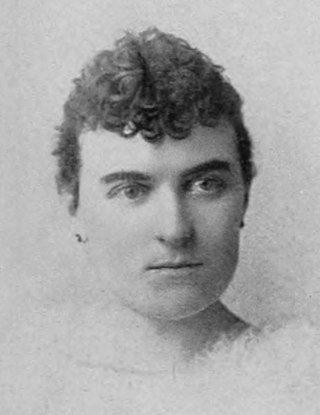
Eleanor O'Donnell McCormack was an American educator and clubwoman from the U.S. state of Ohio. She was a teacher and principal in the public schools of Tennessee and was elected superintendent of public schools for Shelby County. When elected, there were 148 schools in the county. She increased the number and brought them to a higher standard.
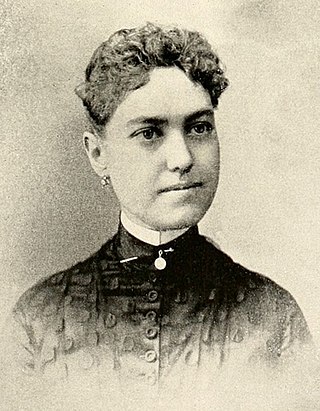
Anna J. Hamilton was an American educator, journalist, writer, and editor from the U.S. state of Kentucky. She was one of the editors for Kentucky on "A Woman of the Century", and was engaged in editorial work on the "National encyclopedia of America". Hamilton served as principal of Semple Collegiate School in Louisville, after taking over its management in 1900, along with Annie Moore.

Maren Bastine Hals Michelet was the first Norwegian teacher in any public high school in the United States and promoter of Scandinavian culture. She was also a referent teacher for Scandinavian languages when the three-language education system was introduced in public school in the United States.

Lillie Rose Ernst was an American educator. She was the mentor of the Potters, an informal group of women artists in early 20th-century St. Louis, Missouri, and the first woman to become assistant superintendent of instruction in the St. Louis public school system.

Ella M. S. Marble was an American physician who worked as a journalist, educator, and activist earlier in her career. From girlhood, she took an active interest in any movement calculated to advance the interests of women. Interested in literary and philanthropic work, Marble served as president of the District of Columbia Federation Womans' Clubs, numbering ten societies and 2,500 members ; president, District Federal; vice-president, Womans' National Press Association for state of Maine; president, Minnesota State Suffrage Association; president, Minneapolis City Suffrage Association; president, Washington City Suffrage Association; Secretary, Pro Re Noto; and secretary, White Cross Society of Minneapolis.
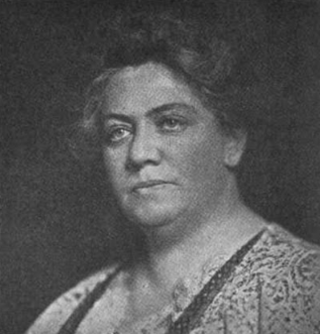
Alice Ames Winter was an American litterateur, author and clubwoman. She served as president of the General Federation of Women's Clubs (GFWC).
Ellen Torelle Nagler was an American biologist, author, and lecturer. She originated a method of teaching science whereby her presentation of the subject followed a definite order of procedure; each object was studied first as an individual entity, and then as a part of the entire living universe.
Central High School (1860–1982) was a public high school in Minneapolis, Minnesota.

Sarah Louise Arnold was an American educator, author, and suffragist. She was better known in the schoolroom and among teachers than any other woman connected with education in her day. In 1902, she became the first dean of Simmons College. In 1925, she became the national president of the Girl Scouts. Arnold was also a writer of books for teachers and texts for schools.

Beatrice Gjertsen Bessesen was an American operatic soprano. She was the president of the Twin City Music and Dramatic Club. Bessesen sang with the St. Olaf Choir and toured with it in Norway. She made successful concert tours in the U.S. and Europe, appearing with various European opera companies. She sang in practically all the leading centers of Europe, and was the prima donna in many big operas. She was a strong factor in developing cultural and artistic appreciation among Norwegian Minnesotans. She is the namesake of the Bessesen Building, which is on the National Register of Historic Places listings in Minnesota.
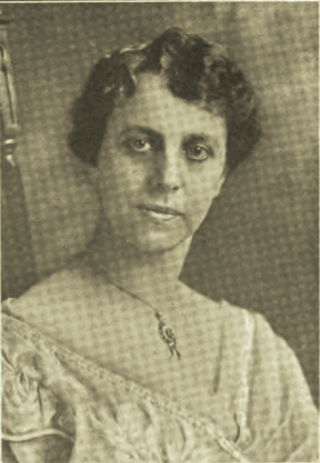
Wilma Anderson Gilman was an American concert pianist, music teacher, and clubwoman. After making her debut in Brussels, she appeared in concerts in 34 U.S. states. Gilman was the first Minnesota musician asked to play as a soloist with the Minneapolis Symphony.

Windom College is a former American parochial school in Montevideo, Minnesota. It is the second school established in southwestern Minnesota by the Congregational church. It was founded in 1885 with the hope that its students would take more advanced courses in Carleton College. Originally named "Western Minnesota Seminary", it became the "Windom Institute" in 1891 in honor of Hon. William Windom, United States Senator and Secretary of the Treasury, who was a member of the Congregational church in Winona, Minnesota, the earliest of the Congregational churches in southeastern Minnesota. The name change in 1912 to "Windom College" gave western Minnesota its first college. Windom College ended operations in 1923. Its building was purchased by and became the official home of the Masons of Montevideo.

Mabel Johnson Leland was an American lecturer on Scandinavian literature and translator from Norwegian to English. Her most notable work with the translation of Arne Garborg's The Lost Father from the New Norse.
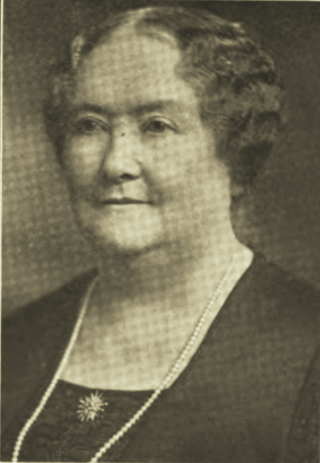
Allie Luse Dick was an American music educator who identified with various religious, social, philanthropic and educational activities. Among the positions she held, Dick served as director of music at Hedding College, 1887-88, and again at Missouri Wesleyan College, 1892-95.
Josephine Thorndike Berry was an American educator and home economist. She held several roles as an educator including that of Superintendent of schools at Waterville, Kansas and Professor of Domestic Science, Northern Illinois State Normal School at DeKalb, Illinois. She was the head of the Department of Home Economics at Northern Illinois State Normal School, at the State College of Washington, and at the University of Minnesota.

Nellie A. Hope was an American violinist, music teacher, and orchestra conductor. She founded and conducted the first women's orchestra directed by a woman in the Twin Cities area, "Miss Hope's Ladies' Orchestra". The first orchestra at Macalester College was established by Hope. In Saint Paul, Minnesota, Hope was active in local music circles, her studios at the Chamber of Commerce Building being the center of a busy musical life.
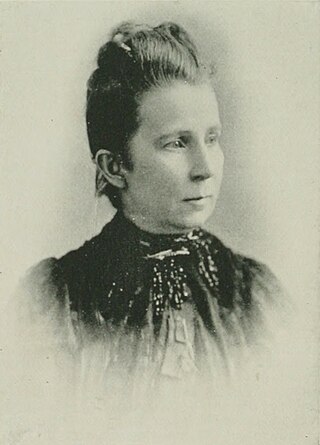
Aline Reese Blondner was an American musician and music educator. Widely known as pianist, organist and teacher, she trained with Asger Hamerik, Carl Reinecke, and Franz Liszt, and performed with the Cincinnati Symphony Orchestra and the New York Philharmonic Orchestra.
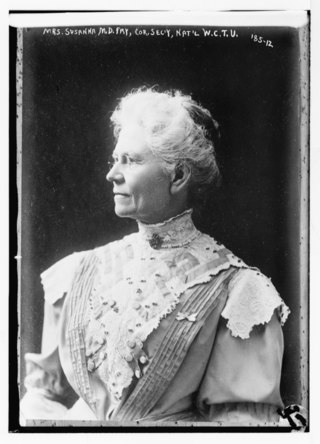
Susanna M. D. Fry was an American educator and temperance worker. Her teaching career began in the primary department of the village school, but her superior ability as a teacher led her swiftly into positions of greater responsibility. Fry was a professor who held the chair of English literature at Illinois Wesleyan University, Bloomington, Illinois and at the University of Minnesota. She served as president of the Minnesota Woman's Christian Temperance Union (W.C.T.U.), and managing editor of The Union Signal, the organ of the National W.C.T.U. During her career as a professor and as an official of the W.C.T.U., Fry was a frequent speaker in Prohibition campaigns and at temperance conventions. Fry was the only woman chosen from the Methodist church to speak before the Parliament of the World's Religions, 1893.

Mary Catherine Judd was an American educator, author of children's literature, and active worker for world peace. Born in New York state, she lived for many years in Minnesota, and in later life, in southern California.

Amy Robbins Ware was an American author, world court worker, peace activist, and clubwoman. During World War I, she served in various capacities for the American Red Cross and the American Expeditionary Forces in France. As a member of the Red Cross, she saw duty in a canteen near the frontlines in the days of the last drive just before the armistice of 11 November 1918 was signed. She was also connected with the army college at Savenay. Ware wrote of her war experience, in prose and verse, in Echoes of France (1920). In 1925, as chair of the department of international cooperation for the Minnesota Federation of Women's Clubs, Ware set in motion the efforts of 50,000 club women of the state to consider the question of international cooperation, her hope being that women may keep informed as to the rapidly changing conditions of the world and be ready to lend aid to further the kind of international cooperation that will bring about permanent world peace.



















